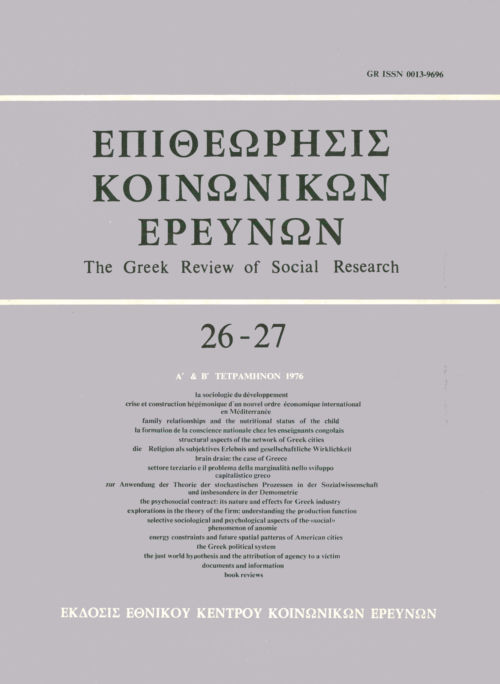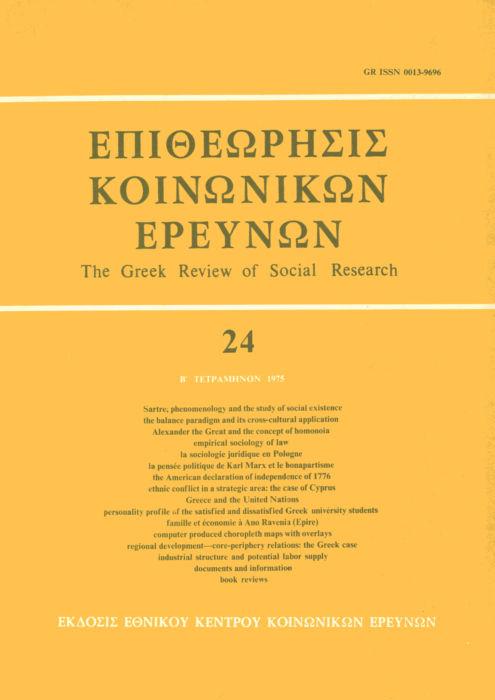The just world hypothesis and the attribution of agency to a victim
Abstract
A study was designed to test the just world hypothesis in
a situation where the derogation of an innocent victim was
socially proscribed. In a 3 X 2 design, experimental subjects
were asked to indicate their affect for an alleged victim of
Nazi atrocities. In one condition, the victim supposedly received
severe maltreatment. In the two remaining conditions,
the severity of the maltreatment was either moderate or low.
It was predicted that, contrary to the just world hypothesis,
increased severity of maltreatment of the innocent victim
would not result in his increased derogation. Rather, it was predicted
that the restoration of justice would be realized by the
attribution of increased agency of the victim in his suffering and
decreased attribution to him as a victim of circumstance, as
the severity of the suffering increased. The results supported
the predictions, though the increased attribution of agency
and decreased attribution of victimization by circumstance
were found only in the case of extreme severity of maltreat
ment.
Article Details
- How to Cite
-
Gonzalez, A. E. J., Cordoza, M. L., & Chapman, M. G. (1976). The just world hypothesis and the attribution of agency to a victim. The Greek Review of Social Research, 26, 157–161. https://doi.org/10.12681/grsr.220
- Issue
- 1976: 26-27 Α'-Β'
- Section
- Articles

This work is licensed under a Creative Commons Attribution-NonCommercial 4.0 International License.
Authors who publish with this journal agree to the following terms:
- Authors retain copyright and grant the journal right of first publication with the work simultaneously licensed under a Creative Commons Attribution Non-Commercial License that allows others to share the work with an acknowledgement of the work's authorship and initial publication in this journal.
- Authors are able to enter into separate, additional contractual arrangements for the non-exclusive distribution of the journal's published version of the work (e.g. post it to an institutional repository or publish it in a book), with an acknowledgement of its initial publication in this journal.
- Authors are permitted and encouraged to post their work online (preferably in institutional repositories or on their website) prior to and during the submission process, as it can lead to productive exchanges, as well as earlier and greater citation of published work (See The Effect of Open Access).




